When it’s that time of year for coats, hats, mufflers and gloves, humans retreat as much as possible to the warmth and comfort of their homes.
Crackling, cozy fires and holiday celebrations all have their place, but in the deep heart of winter what may seem to be a hiatus from household pests, is alas, a myth, and pest-control and pest-management services is as important at this time of year as any other.
While ‘out of sight, out of mind’ is an apt adage when referring to certain things, it should not be considered true when it comes to insects that are suddenly not harassing residents, their children and their pets as soon as the temperatures begin to drop.
The question is where have they gone, and the answer is taking a long nap so they can awaken again in the spiring only to be pains once again in places too polite to mention.
Understanding Diaphase
Insects have a variety of methods for surviving the winter. Not all species behave in the same manner when temperatures drop.
Many pests seek warmth and food, and when those resources disappear in the winter, bugs often migrate to more obliging locations.
Others may enter a hibernation-like stage known as diaphase, and some even huddle together for warmth.
In general, the survival of cold temperatures is easiest when temperatures are stable and not fluctuating in between thaws and freezes.
Many insects can gain shelter and nourishment in a variety of micro-habitats.
These include: under the soil, inside logs and trees, and even in plant galls (a kind of swelling growth on the external tissues of plants, fungi, or animals).
Diaphase is the insect version of hibernation.
According to Scott Hayward, an invertebrate biologist at the University of Birmingham, England, who has done extensive research on insect dormancy and survival in extreme environments:
“Though diapause is an adaptation to survive the winter, temperature is not the main factor that triggers it.
Instead, shorter days in the lead-up to winter help signal to the insects’ bodies that it’s time to get ready for dormancy.
As the days stay warmer later into the fall, insects’ bodies get confused. Mistakenly thinking that it’s spring or summer, they often end up aborting the diapause process to begin looking for food or mates, which leaves them unprepared for when winter actually strikes.”
No matter how cold it is outside, home owners must be sure their property is free from pests by aligning themselves to a pest-control and pest-maintenance company they can trust; namely, Pestco Professional Services!
It is usually necessary for Pittsburgh homeowners to tweak applications so that they particularly correspond to winter pest activity.
Eight Insects And Their Winter Patterns
Ants
While ants are everywhere when the summer months hit, cold weather sends many of them underground.
Most ants will overwinter outdoors within their colonies and go dormant. Indoor colonies, or those that are located in mild climates, may stay warm enough to be active all winter long.
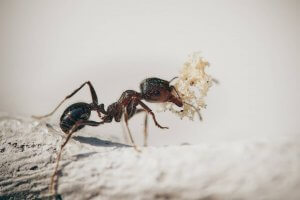
Typically, when the temperatures drop in the fall, the ants will gorge themselves and fatten up.
With the extra weight, they can last for extended periods without eating. Ants also seal up their colony when the temperature drops.
The ants close up the entrances, huddle together and hide away to stay warm.
They may create their nests in deeper soil with special tunnels that retain heat; underneath warm, sun-drenched rocks and beneath leaves and tree bark.
Ants generally will not migrate indoors during the winter, but if their colony is already inside a building, they will remain there and stay active if the temperatures are warm enough.
The species known as the Winter ant will even remain engaged at low temperatures while others are entering dormancy. This kind of activity provides them with less competition.
They ants enter the diapause process throughout the summer months.
Bees And Wasps
In most species, the queens are the only insects within the hive that enter diapause during the winter.
When they awaken in the spring, they leave the hive to form a new colony. When temperatures drop, and pollen sources become scarce, bees and wasps respond in a variety of ways depending on their species and life stage development.
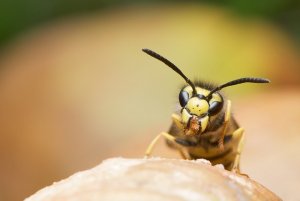
Honeybees respond en masse to the cold, returning to the hive and huddling around the queen. Mother Nature allows them to vibrate their wings, which serves to maintain a tolerable temperature within the hive.
The colder it gets, the smaller and tighter their huddle becomes. They also gain body strength by consuming large amounts of honey. Bumblebees always revert to diapause during the winter.
At summer’s end, they produce several queens that nest and re-emerge in the spring to build new nests.
Horn-faced bees, which are found in Japanese orchards, shelter in a cocoon until the warmer months arrive, and carpenter bees survive via diapause.
Many wasps die off in winter, but mated females survive by seeking shelter. Survival is not easy due to predators and lack of food sources.
An unusually mild winter can be a death sentence for a wasp species because the queen may emerge before food sources are available.
Bed Bugs
Bed bugs can survive in temperatures just above freezing, but their sensitivity to cold causes them to prefer warmer environments where their favorite hosts; namely humans, sleep in their beds.
They can only last for a few days in below-freezing climates.
They are, however, capable of hiding out for quite a while without moving anywhere, as they can live without food for as long as 400 days.
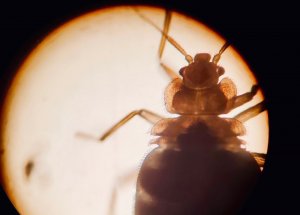
Homes provide cozy warm bedrooms where they can bite and reproduce quickly, and heavy winter clothes and linens are often thick, which provides more places to hide.
Holiday travel is a boon for bedbugs, as luggage, valises and bags provide perfect transport for these undesirable travelers.
This is why pest-control and pest-management strategies are so vital at this time of year.
Cockroaches In Winter
While roaches are extremely hardy pests that have been around since the dawn of time, they don’t respond well to the cold.
They are active all year round in warm, moist environments, such as kitchens, where they can find both food and humidity.
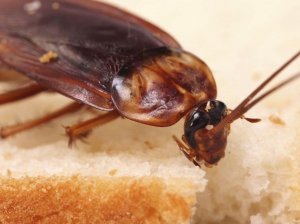
Once the temperatures drop, there is often a surge of roach migrations into warmer places, such as private residences and commercial buildings.
When they are caught in the cold, roaches are known to either group together for warmth or enter diapause, which slows metabolic rates, stops growth and limits reproduction.
A roach’s response to cold relates to both its age and species. In many instances, adults will die off while the nymphs enter diapause. Different species react differently to extreme climes.
For example, german cockroaches seek food and warmth sources found in kitchens, while oriental varieties prefer the indoors, and unlike many other insects, reproduce during the winter.
They also tend to remain in moist areas such as drains or basements, and they are known to tolerate low temperatures better than other roach species.
American cockroaches generally prefer the outdoors, and brown-banded cockroaches prefer to live near heat-producing electric motors found in appliances and electronics.
They are also known to seek out high places as well.
Mosquitos
Many Pittsburgh homeowners mistakenly believe that mosquitos disappear in winter, and there is no need to contact our teams at Pestco to combat their growth.
In fact, mosquito response to the cold very much depends upon the species.
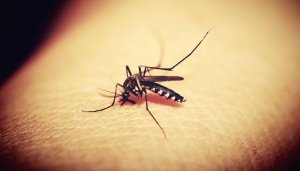
Generally, they prefer warmer temperatures and cope with the cold by laying eggs in the fall in standing water or or soil, where they suspend their growth with diapause.
These eggs hatch in the spring and insects reach adulthood and multiply rapidly.
Ticks
Ticks may be out of sight during the winter, but they have not gone away. Studies indicate that only about 20% of the tick population die off and the others, depending on both species and life cycle stage, survive the colder months either via diaphase or parasitically, by latching onto a host.
A tick’s movement is totally dependent on its environment.
In woody or bushy areas where they tend to populate, ticks hide in leaf litter.
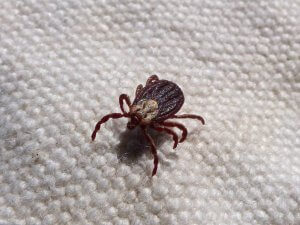
Blankets of snow serve as insulators for dormant species by maintaining constant temperatures, and in the case of soft shell ticks, survival is contingent upon staying under ground in burrows or dens.
Black-legged ticks (aka deer ticks), which carry Lyme disease, remain active as long as the temperature is above freezing and the ground is not covered in snow.
The winter tick is aptly named for its ability to survive cold temperatures. It is well known in North America and preys on moose and deer.
This species seeks out a host in the late fall months and will remain with them for their whole lives. The ticks latch on and feed, hiding out in the host’s hair to keep warm all winter.
Spiders
Although most spider species do not migrate indoors, when seeking warmth and shelter, pest-control and pest-maintenance experts often find them there.
One reason for this can concern a female laying her eggs close to the home; another may be that spiders often follow bugs that are attracted to the light indoors.
It is also possible that a male spider may enter a home after traveling farther than usual seeking a mate.
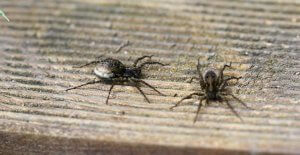
Outdoor species prefer the cold and survive via diapause. They seek out stacks of leaves or wood.
During diapause, many spiders endure a hardening process in which their bodies create an anti-freeze compound not unlike that which is used in automobiles.
This serves to lower the temperatures at which they freeze and helps them survive extreme climes.
One species of outdoor spider that prefers to winter inside for warmth is the Brown Recluse, which is known for the violin-shaped mark on its back and for its very nasty bite.
Termites
Termites are known to have several diverse responses to the cold, but they do not hibernate.
Most of them seek warmth for survival during the winter. Subterranean termites will remain outdoors, but often dig deeper into the soil, past the frost line, to keep warm. Snow provides additional cover and warmth.
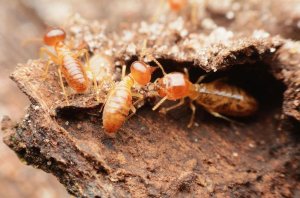
The colony waits out winter and suspends egg production.
If the winter lasts longer than usual, or if enough snow does not fall, the colony can die out. Many termite species can perform business ‘as usual” as long as they can find warmth and shelter for the season inside the walls or underneath a structure.
One very unpleasant way to discover indoor termites concerns a clicking noise in the walls, which if heard, is an indication that termites are knocking their heads against the sides of their tunnels attempting to communicate with one another. To home owners the message is clear.
It means they should contact a pest-control expert immediately, without passing go or stopping to collect $200!
The Friendliest Pittsburgh Pest Control Services
It all began in 1948 when a burgeoning commercial pest control company called Pestco began its journey to prominence throughout Greater Pittsburgh, Western Pennsylvania counties and surrounding tri-state locations.
Our unwavering mission over the course of time has remained the same; namely to provide experienced, responsive and uncompromising service to all their clients.

Pestco is and always has been a family-run business equipped with the most cutting edge and cost-effective pest control strategies for commercial and industrial business spaces.
Call our teams today and let us effectively solve all your pest-control and pest-maintenance problems!
Photo Credits: Pixabay
 Over 300 Reviews
Over 300 Reviews 